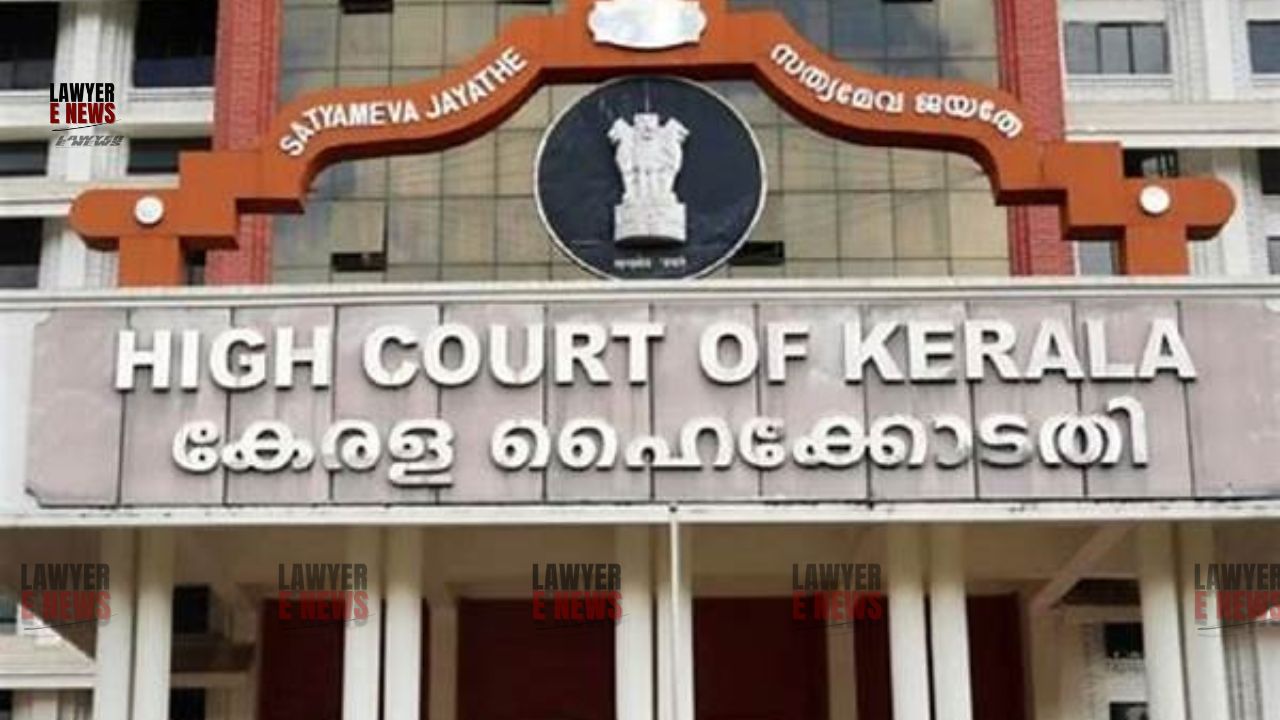-
by Admin
15 February 2026 5:35 AM



On November 12, 2024, the Kerala High Court, in a significant ruling in W.P.(Crl.) No. 989 of 2024, directed the deletion of petitioner Hari Lal P.L.’s name from the rowdy history sheet maintained by the police. Justice Bechu Kurian Thomas held that retaining the petitioner’s name despite no convictions in 20 out of 21 cases over two decades amounted to a violation of his fundamental rights under Article 21 of the Constitution.
The judgment emphasized the need for procedural compliance under Clause 259(8) of the Kerala Police Manual and criticized arbitrary police actions that tarnish individuals’ reputations.
The petitioner, a former student politician, alleged wrongful inclusion in the rowdy history sheet since 2008, attributing the police's actions to political vendetta after his shift in political allegiance. Despite no convictions in 20 criminal cases registered against him since 2002, and most cases being quashed or resulting in acquittals, the petitioner’s name remained on the list.
He sought the removal of his name to safeguard his reputation and liberty, claiming that the label hindered his ability to obtain a passport and live a normal life. The petitioner also cited harassment through repeated preventive detention orders under the Kerala Anti-Social Activities (Prevention) Act, 2007 (KAAPA), all of which were later revoked.
The court highlighted that maintaining a rowdy history sheet without valid grounds adversely impacts an individual’s liberty and reputation. Justice Bechu Kurian Thomas remarked:
“The term 'rowdy' creates a negative impression in the minds of the public, branding the individual as a criminal and infringing upon their right to personal liberty.”
The court observed that the petitioner had not committed any offense warranting such branding in the past decade, making his continued inclusion unjustifiable.
Clause 259(8) of the Kerala Police Manual allows closure of a rowdy history sheet based on recommendations from senior police officers. The court noted that despite repeated representations by the petitioner, the police had not followed due process to review or close the sheet. Justice Kurian Thomas stated:
“Maintaining the rowdy history sheet in perpetuity without reassessment amounts to procedural non-compliance and arbitrary exercise of power.”
The court found substance in the petitioner’s claims of police vendetta, citing repeated detention orders under KAAPA, all of which were subsequently quashed or revoked. The judgment observed:
“The petitioner’s allegations of being falsely implicated and targeted are not without merit, given the absence of any conviction and the police’s failure to substantiate their claims of his criminal conduct.”
The court referred to Rajesh R. v. State Police Chief (2018 KHC 888), where it was held that individuals without recent criminal activity cannot be labeled as habitual offenders. Drawing from this precedent, the court noted:
“Merely committing offenses long ago cannot justify retaining a name on the rowdy history sheet indefinitely.”
Deletion of Name: The respondents were directed to remove the petitioner’s name from the rowdy history sheet within four weeks, as per Clause 259(8) of the Kerala Police Manual.
Rejection of Compensation Claim: The petitioner’s claim for compensation and departmental action against police officers was declined, citing insufficient evidence of malice.
Non-Prejudicial Observations: The judgment clarified that its observations would not prejudice ongoing investigations in the sole remaining case against the petitioner.
The constitutional protection of personal liberty and reputation under Article 21.
The necessity for procedural safeguards in police actions, preventing arbitrary or perpetual labeling of individuals as offenders.
The importance of ensuring that the Kerala Police Manual is not misused to target individuals without substantiated evidence.
Date of Decision: November 12, 2024
